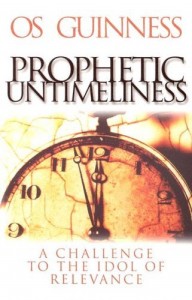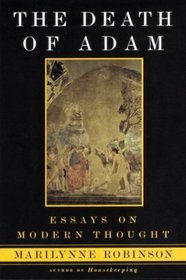Pagan Christianity
 It’s a rather inflammatory title, isn’t it? The subtitle, “Exploring the Roots of Our Church Practices,” is a little less so, but you can see where the exploration has led authors Frank Viola and George Barna: a conviction that the “pagan” historic influences on the way Christianity has been practiced over the centuries strip the institutional church of all credibility. They advocate instead “organic church,” defined this way:
It’s a rather inflammatory title, isn’t it? The subtitle, “Exploring the Roots of Our Church Practices,” is a little less so, but you can see where the exploration has led authors Frank Viola and George Barna: a conviction that the “pagan” historic influences on the way Christianity has been practiced over the centuries strip the institutional church of all credibility. They advocate instead “organic church,” defined this way:
An organic church is simply a church that is born out of spiritual life instead of constructed by human institutions and held together by religious programs. Organic churches are characterized by Spirit-led, open-participatory meetings and nonhierarchical leadership. This is in stark contrast to a clergy-led, institution-driven church.
Frankly, that sounds pretty good to me. I’ve never experienced that, despite “growing up in the church,” as they say.
Standing back and looking at the big picture, who would disagree that the institutional church as practiced in the evangelical world does not resemble the first century church? Yet I took the historical commentary in this book with a grain of salt. For one thing, even the first century believers were influenced by tradition and culture in their expression of their faith; there is simply no such thing as unenculturated, ahistoric human beings. The fact that historic influences that were not necessarily “Christian” or “biblical” have played a part in shaping Christianity’s expression over the years does not surprise me, nor does it automatically discredit all modern forms. (C.S. Lewis pointed out, in fact, that the pagans foreshadowed and reflected the grand Christian story in some of their myths and attitudes.) For another thing, these authors paint with an very broad brush. They are up-front about this, pointing out that an exhaustive historical commentary would produce volumes rather than a single book, and it would not reach their intended audience. But the inevitable result is perhaps a few too many certain declarations about when and why a certain tradition began.
That said, I still appreciated this book, because it prompts thought about the question that is pertinent: at what point do the cultural influences fundamentally change the heart of our faith? At what point do our institutions and traditions change the gospel into something else? I think Viola and Barna offer some convincing discussion of ways this has happened. I particularly liked the sections on church architecture, in which they “exegete the building;” on tithing; and on the contemporary idea of the pastor. I was less interested in the historical dimensions of the discussion than in the confirmation of what I observe and wonder about in my own church experiences.
Full disclosure: we’re between churches at the moment. And though we need church (of course), we’re not interested in the institutional forms. So let’s just say I did a lot of underlining. I’m no more objective than the various reviewers who run churches or teach at seminaries who’ve posted their complaints about this book. (I’m a bit late to the party on this one, which was discussed plenty when it first came out in 2008.) Whatever lies ahead for us, it will reflect the characteristics of the organic church I’ve already quoted. Viola has a sequel called Reimagining Church that lays out different alternatives. I came upon this post describing a house church today, and it sounds great. Maybe something like that is ahead for us.
Eerily, we’ve run into a number of other church refugees in various settings lately. I grew up hearing that people who went from church to church were “joy poppers,” immature people looking for experiences. But these folks I’ve talked with lately are committed Christians looking for a place where they can worship with integrity. It’s enough to make me wonder if the church in America is headed toward change of the sort G.K. Chesterton refers to in The Everlasting Man:
Again and again, before our time, men have grown content with a diluted doctrine. And again and again there has followed on that dilution, coming as out of the darkness in a crimson cataract, the strength of the red original wine…
This is the final fact, and it is the most extraordinary of all. The faith has not only often died but it has often died of old age. It has not only been often killed but it has often died a natural death; in the sense of coming to a natural and necessary end…
To-day it stands once more in our path; and even as we watch, it grows.
Pagan Christianity is a book worth reading for any Christian, because it’s just flawed enough to leave you room for critical thinking, and just on-the-mark enough to send your thoughts in profitable directions if you are serious about truth and spiritual growth. Above all it’s a hopeful reminder that church doesn’t have to look the way human tradition tells us it must.



10 Comments
Rae
Speaking of G.K. Chesterton, have you read Orthodoxy? I have not read the book you are reviewing, but it sounds like Orthodoxy would make an interesting contrast to it.
Janet
Yes, I loved Orthodoxy! (Review here: https://www.acrossthepage.net/2009/12/orthodoxy/ ) Wouldn’t call it a contrast, really; just a more personal take on the same subject.
Janet
Same subject as The Everlasting Man, I mean. (Just realized I misunderstood you.)
As far as how Chesterton compares to Viola and Barna: I agree with you that Chesterton’s perspective on history is different. He’s more joyful, less worried about the fact that Christianity has manifested itself in different forms throughout history. But his focus isn’t the institutions. The quote here comes from a passage where he is talking about the endurance of the faith (or the church universal) throughout history, and he’s making a passing reference to how its forms have often changed.
Chesterton’s attitude toward the faith doesn’t seem tied to an institutional form. I doubt that he’d have a problem with this book’s assertion that the church doesn’t have to follow the typical evangelical form. I also think he and these authors share a belief in the importance of orthodoxy.
DebD
sigh. To say that I hated this book would be an understatement. Yeah, flawed is right. If someone is looking for historical Christianity, finding it in a modernized Protestant house church will about as far as one can get. Have you read Ben Witherington’s review? He’s no friend of Orthodoxy, but yeah, he has some salient things to say about this book too. At least he knows his Church history. What’s sad is that there are some very good Church history books too.
Here’s my review from Goodreads. https://www.goodreads.com/book/show/1479319.Pagan_Christianity (hopefully it linked up to my review and not just the book).
Sorry you’re between churches. It’s very hard, especially with children. Hope you find your place soon.
Janet
I read some of his review before picking up PC, but it’s so long I didn’t finish it. Also the response to it by Jon Zens.
Yes, the history is very sketchy. And the tone is close to outrage all the way through, isn’t it? One reviewer said to be careful not to drop the book or it might explode. :-) Still, I thought some of their observations about the way the official evangelical church works now were right on. I sure don’t know what the solution is.
It all makes me very tired.
Off to (apprehensively) read your review.
Edited to add: I see your recommendations over at Goodreads. Thanks.
I have to admit, the 4 loooong blog posts by Ben Witherington III struck me as turf wars, and that’s part of why I didn’t finish them. He said right at the start that he felt he should have been quoted in the book, and he represents part of the establishment that it rails against, so it didn’t surprise me that he didn’t like it. On the other hand there are other seminary profs who have come out with endorsements. So it’s hard to know who to believe.
Do we need to have a degree in church history or theology to recognize the dysfunction in the church?
I don’t mean to be argumentative, but I am really struggling.
Janet
BTW, what do you recommend for reading church history? I have ‘Church History in Plain Language,’ but I would be interested in your suggestions.
DebD
I feel your pain too. Church politics is the worst! I do think we need to look at the church honestly and without rose-colored glasses… but that doesn’t mean we have to throw the baby out with the bath water.
I think that is an insightful understanding of BW review… and one I hadn’t seen back when I originally read the review (yes, I totally agree – way too long!).
I would probably first recommend Chadwick’s, “The Early Church” for church history. Next would be Ware (although it’s really focuses on the EO church and not necessarily what you’re looking for) or Bradshaw. Pelikan is good in small chunks – it’s 5-6 volumes! Probably way more than you want. Definitely way more than I wanted. LOL. But for Apostolic Father’s try to find the one edited by Sparks. He talks a little about the history of each of the writings (mostly letters). When I first read them I was shocked to discover that many were lost to the West (or only available in Greek) until well after the Reformation. Very sad indeed. Other editors may do that as well, but I don’t know and I found that snippet of information to be quite eye-opening. I think every Christian should try to read them once in their lifetime. Most of them knew or were disciples of one of the Apostles. They are the voices of the next generation of Christians speaking to us through the ages.
Janet
Thanks, Deb. These titles are great — just what I need! There is so much written that it’s impossible to know where to start without a recommendation.
Amy @ Hope Is the Word
Janet,
I feel your pain! I have nothing to add to the discussion–just wanted to send you a cyber hug.
Janet
Thanks, Amy — I can certainly use one!